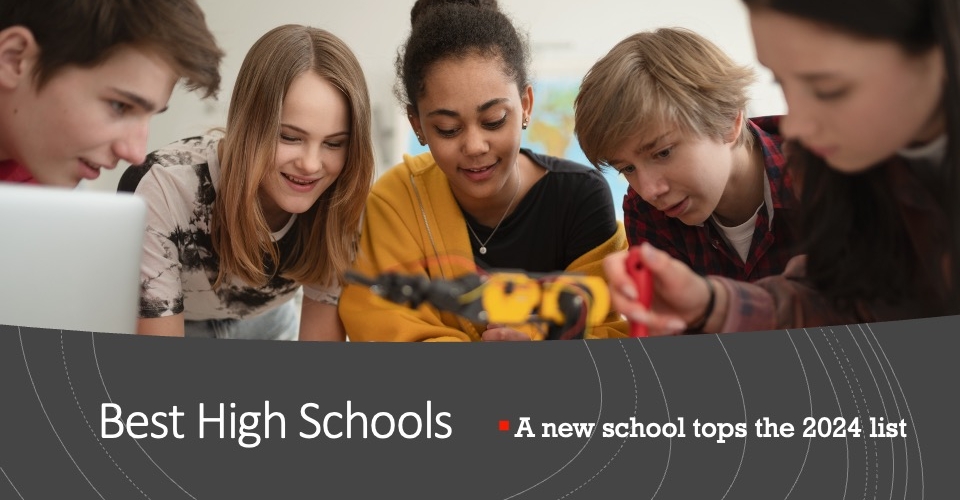As administrators, we are responsible for providing every possible opportunity for students to succeed. Unfortunately, all too often, student success is defined as a student’s success while attending school–not the long-term benefit education has on the student’s adult life.
Our small district, Doddridge County Schools, has embarked on a cutting-edge innovative approach to long-term student success, establishing public-private partnerships. Although public schools rely upon businesses for monetary sponsorships, bringing the private sector in as a genuine academic partner has been a missed opportunity for public education. Partnering with local industry to create dynamic, localized curricula provides students with the essential skills to step directly into the workforce and transforms the face of education today.
The public-private partnership concept holds untapped potential yet has been overlooked for many years. For whatever reason, the private sector and public education have never come together academically. While the idea that both entities work together to develop quality curricula is foreign to many, it can profoundly benefit our students. Doddridge County Schools is working to bridge the gap by connecting with the private sector in the academic arena, possibly creating a wave of the future for education.
Together, we began developing localized curricula that have been advantageous for students in our school system and beneficial to the business world. During round-table discussions with local businesses, we identified skillsets and specific certifications required to be successful in the industry. These deliberations allowed thoughtful consideration of employee needs and company expectations.
Localized curricula are cutting-edge and inherently contextualized to a community. For me, this is Doddridge County, West Virginia. Rural, poverty-stricken, but surrounded by tremendous natural resources, the county has two stoplights and North America’s largest natural gas processing plant. This dichotomy is the root of my vision of training a 21st-century workforce by connecting current students with future employers.
Promise of public-private partnerships
Doddridge County, West Virginia, sits atop one of the most extensive and valuable shale natural gas fields. In theory, tax revenues fueled an academic resurgence in Doddridge County Schools over the last 15 years. West Virginia school districts are county-wide systems, and in 2008 Doddridge County Schools ranked 53 out of 55 county systems. Today, we rank third! Money alone did not raise the ranking but provided funding for many innovative initiatives.
Our district initially partnered with JASON Learning for their out-of-the-box STEM Consortium, specifically the Argonaut program. We periodically send students and teachers worldwide to train with scientists during expeditions. When they return, they share their stories, research, and development, bringing new excitement to their peers and community.
More from DA: New education laws took effect this month. What’s in store for these 3 states?
While this is the common focal point for the program, my interest peaked when I learned of their ability to create localized curricula. Coincidentally, CityNet, a fiber-optic broadband provider, was beginning to connect a large portion of our county to the internet for the first time.
As a result, we saw an opportunity to partner with CityNet to create a course designed to teach our students the science and math necessary to engineer a broadband network and connect them directly with professionals as they apply their knowledge to their vocation. Different curriculums have been developed, with Triple H Enterprises for Engineering, City Construction Company for HVAC, and MPLX for Energy within our 8th-grade curriculum.
Sadly, public education is becoming old school. However, focusing on the three R’s of localized curricula can rejuvenate its potential—no, not the 3 R’s you are thinking about, but instead relevant, relational and rewarding.
Public education is now considered a choice among alternatives as state legislatures expand educational options (charter schools, micro-schools, learning pods, non-public schools, etc.). We must innovate to stay relevant, and public-private partnerships expand student options by providing localized curricula that maintain relevancy in the community.
Additionally, our students gain a greater understanding of industries located “in their backyards,” bringing greater relevance and meaning to their education. As students interact with these businesses and potential future employers, the significance of public education comes full circle.
Localized curricula teach relational skills essential in the industry. Each business we have partnered with (internet provider, diesel repair company, engineering company, oil and gas processing) has its specialized trade language. As our students relate to their mentors, they learn the language necessary to communicate in the industry effectively. Beyond the traditional communication courses, students learn the jargon of their business affiliates. Just as using proper grammar is critical to success in an English class, effectively communicating in the parlance of your trade validates understanding and strengthens relationships.
How the whole community benefits
Custom-designed curriculum rewards students, businesses, and the community. Throughout the coursework, students earn certifications, job shadow key employees, and experience the work environment in a trial manner. Likewise, businesses are rewarded by training and preparing students, increasing the pool of potential workers.
In addition, the greater community benefits through a highly trained workforce contributing to the economy. Previously, many students would graduate and leave the area searching for high-paying jobs; however, due to localized curricula, the community prospers when more students gain meaningful employment and remain in the local community, thus leading to generational wealth.
We all know that four-year colleges only fit the mold for some students. Vocational training provides an alternative option and will always have a place in public education. However, the way of the future is bringing local companies in and creating state-approved curricula that directly address the knowledge, skills, and abilities the surrounding industry needs.
If we truly want our students to succeed after graduation, we must give them every opportunity possible to be college OR career ready. So, what better way than to expose them to the industry world before graduation?









